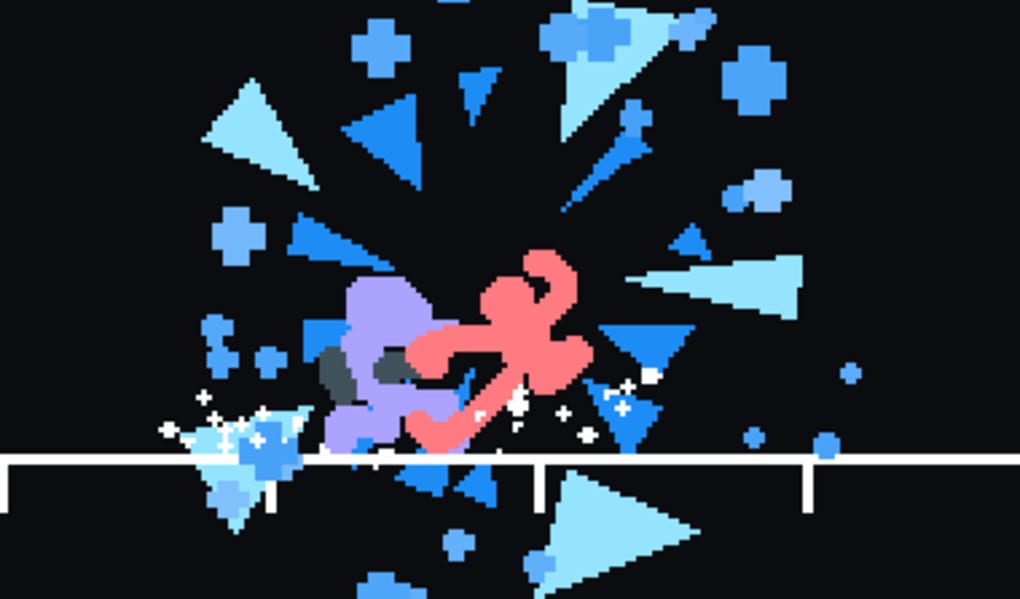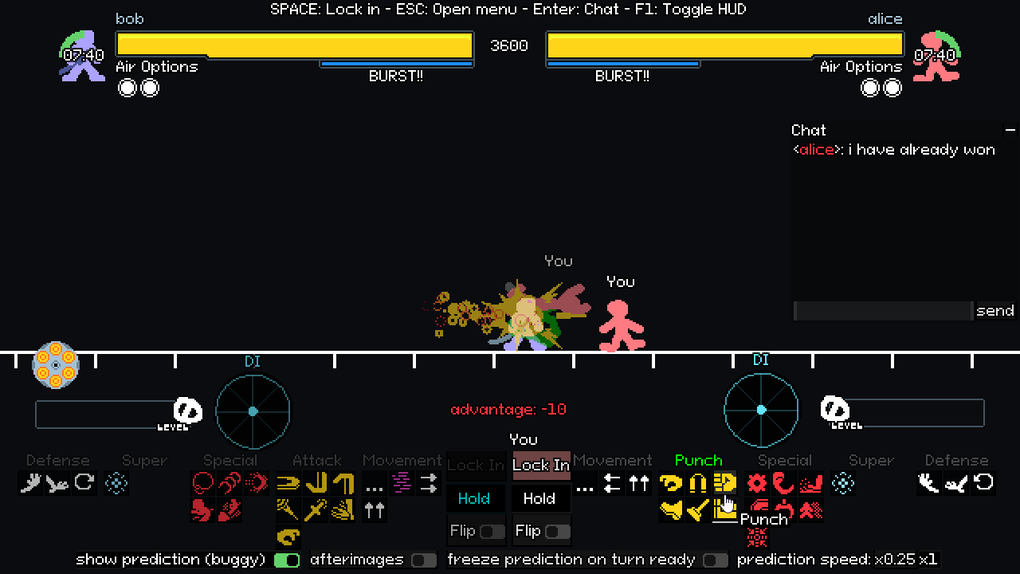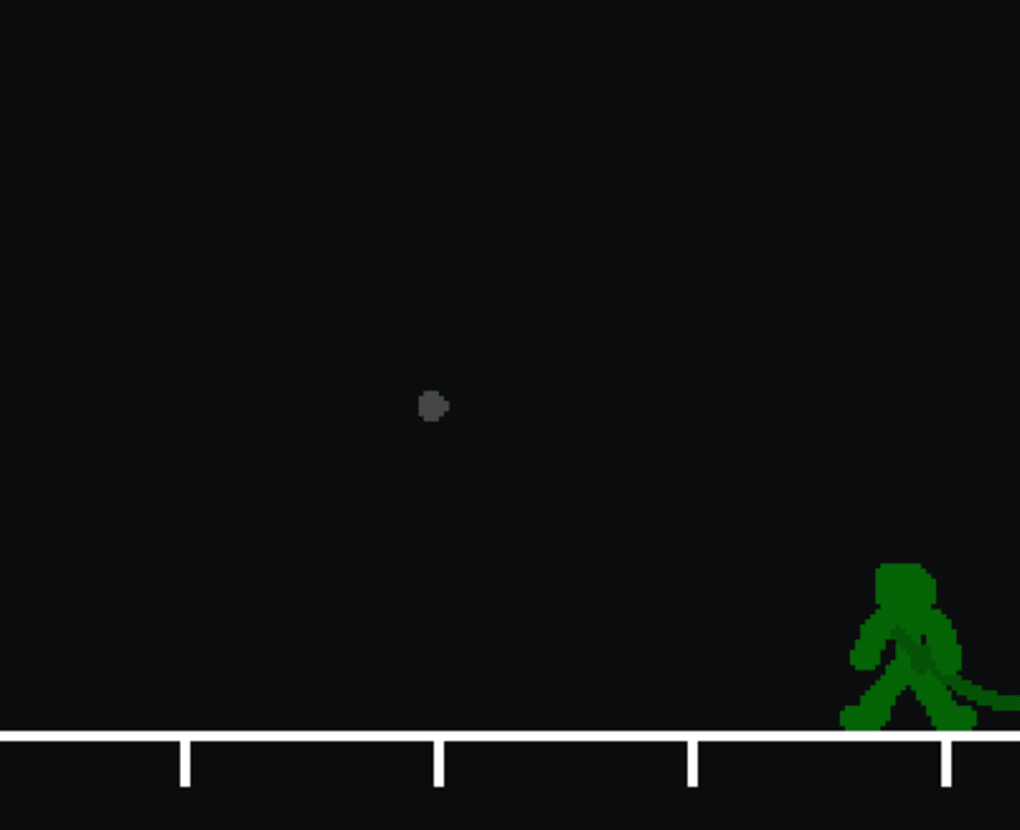Yomi Hustle is a free-to-play, turn-based fighting game that offers a unique blend of strategic depth and nostalgic charm. Unlike traditional fighting games that emphasize rapid, complex button combinations, Yomi Hustle empowers players to become fight choreographers, meticulously crafting their combat sequences for maximum impact. This innovative approach, combined with its pixel-art aesthetic reminiscent of classic 2D fighters, creates a compelling and accessible experience for both seasoned fighting game veterans and newcomers alike.
Strategic Combat Through Choreography
The core gameplay of Yomi Hustle revolves around the strategic sequencing of moves. Instead of frantic button mashing, players select actions from a menu at the bottom of the screen and arrange them in a timeline. This timeline dictates the character’s actions during a match, allowing for intricate combinations and tactical maneuvers. This system transforms the usual reactive nature of fighting games into a proactive, strategic experience where planning and foresight are paramount.

The available actions are diverse and plentiful, encompassing a wide range of melee attacks, defensive maneuvers, directional movements, and powerful “super” abilities. This vast array of options enables players to create a virtually limitless number of unique fighting styles. Whether you favor a flurry of quick strikes, a calculated defensive approach, or a devastating burst of special moves, Yomi Hustle offers the tools to build and refine your personalized combat strategy. Mastering the timing and synergy between different moves is crucial to success, adding a layer of complexity that rewards thoughtful planning and execution.
The game’s turn-based nature adds another layer of tactical consideration. Each player carefully constructs their sequence of actions before the round begins, allowing for careful consideration of the opponent’s likely counter-strategies. This pre-emptive planning eliminates the frantic, split-second decision-making common in real-time fighting games, fostering a more deliberate and engaging style of play. The focus shifts from reflexes to strategic thinking, making Yomi Hustle a refreshing alternative within the fighting game genre.

A Sandbox for Creative Combat
Yomi Hustle’s design embraces a sandbox mentality. The sheer number of available moves and the flexibility of the timeline system allows for a vast range of combat styles. Experimentation is highly encouraged; the game actively rewards players who explore unconventional approaches and find creative synergies between seemingly disparate moves. This inherent flexibility allows for considerable player expression, allowing each player to develop a distinct fighting identity. The game isn’t just about winning; it’s about crafting a unique and effective fighting style that reflects your personal preferences and strategic prowess.
The game’s single-player mode functions as a robust training ground for refining your combat strategies. It allows players to experiment with different move combinations against a variety of opponents, providing valuable feedback and helping them to hone their skills. The single-player experience serves as a crucial stepping stone to the online PvP mode, where players can test their skills against other players from across the globe.
A Nod to the Past, a Leap into the Future
Yomi Hustle’s pixel-art graphics evoke a strong sense of nostalgia, immediately transporting players back to the golden age of 2D fighting games. The game’s aesthetic is deliberately reminiscent of classic titles from the 1980s and 1990s, captivating players with its charming retro charm. This deliberate retro design choice enhances the game’s unique appeal, attracting players who appreciate the classic aesthetic of those earlier eras. It’s a game that recognizes and respects its heritage while simultaneously forging its own unique path.

The game’s visual style isn’t merely a stylistic choice; it’s an integral part of the overall experience. The simplified visuals serve to enhance the clarity and readability of the combat, making it easy to follow the flow of the fight and understand the consequences of your actions. The pixel art enhances the game’s strategic focus, ensuring that the player’s attention remains on the intricate tactical elements rather than being distracted by overly complex visuals.
While visually reminiscent of older games, Yomi Hustle is far from a mere imitation. Its innovative turn-based system and extensive move set introduce a fresh perspective to the fighting game genre, providing a unique and engaging experience that stands apart from its inspirations. The game expertly blends the nostalgic appeal of retro gaming with cutting-edge gameplay mechanics, creating a refreshing experience for both seasoned and novice players.
Online Competition and Community
Yomi Hustle offers both single-player and online multiplayer modes. The online component adds a significant layer of social interaction and competitive engagement. Players can compete against each other in real-time, testing their strategic prowess and carefully crafted fighting styles. The online arena becomes a platform for showcasing creativity and mastery of the game’s mechanics, allowing players to refine their strategies through repeated encounters and learn from their opponents’ styles.
The competitive aspect of the game encourages a sense of community among players. The online lobby provides a space for players to connect, share strategies, and engage in friendly rivalries. This sense of community fosters a dynamic and supportive environment for both experienced and new players, encouraging collaboration and knowledge sharing. It’s a game where success isn’t just about individual skill, but also about the shared understanding and evolution of the game’s strategic landscape.
The Future of Yomi Hustle
While Yomi Hustle is already a compelling and engaging game, there’s ample room for future development and expansion. The developers could introduce new characters, each with unique abilities and fighting styles, further enriching the strategic depth of the game. The possibility of adding new environments, game modes, or even a robust story mode could enhance the player experience and further solidify the game’s position in the turn-based fighting game landscape.
Additional features could enhance the social aspects of the game. The implementation of a ranking system, leaderboards, or tournaments would add an additional layer of competition and motivate players to improve their skills. Expanding the social features to allow for more direct interaction between players, such as guilds or clans, could foster a stronger sense of community.
Despite its current strengths, the game does have some limitations. The lack of support for 32-bit systems may exclude some players, and the limited audio-visual effects could be improved to enhance the overall presentation. The fact that English is the only supported language is another limitation that could potentially hinder wider adoption. However, given the game’s overall quality and innovative gameplay, these shortcomings are relatively minor and don’t detract significantly from the core experience.
In conclusion, Yomi Hustle represents a unique and innovative entry into the fighting game genre. Its turn-based combat system, coupled with its charming retro aesthetic and its emphasis on strategic planning, creates an exceptionally engaging and replayable experience. It successfully blends nostalgia with modern game design principles, catering to both casual players and hardcore strategy enthusiasts alike. With its strong foundations and ample room for future development, Yomi Hustle is poised to carve out a significant niche for itself within the burgeoning world of indie fighting games.
File Information
- License: “Free”
- Version: “1.0”
- Latest update: “July 25, 2025”
- Platform: “Windows”
- OS: “Windows 8”
- Language: “English”
- Downloads: “23.8K”
- Size: “22.10 MB”
















